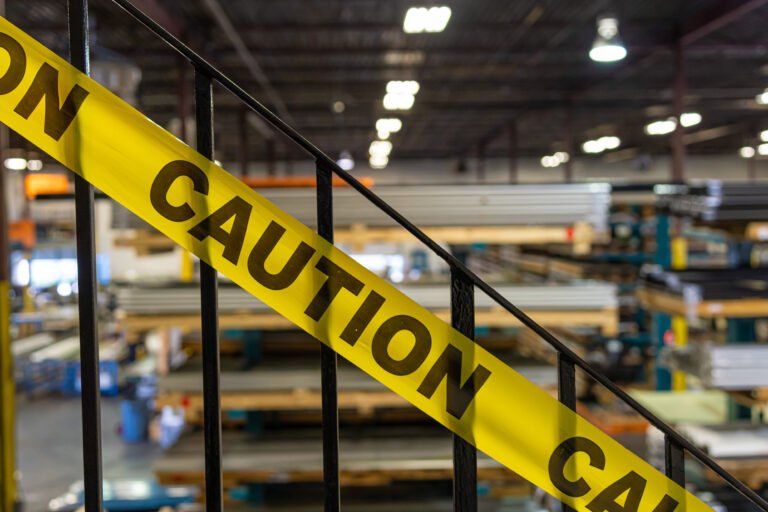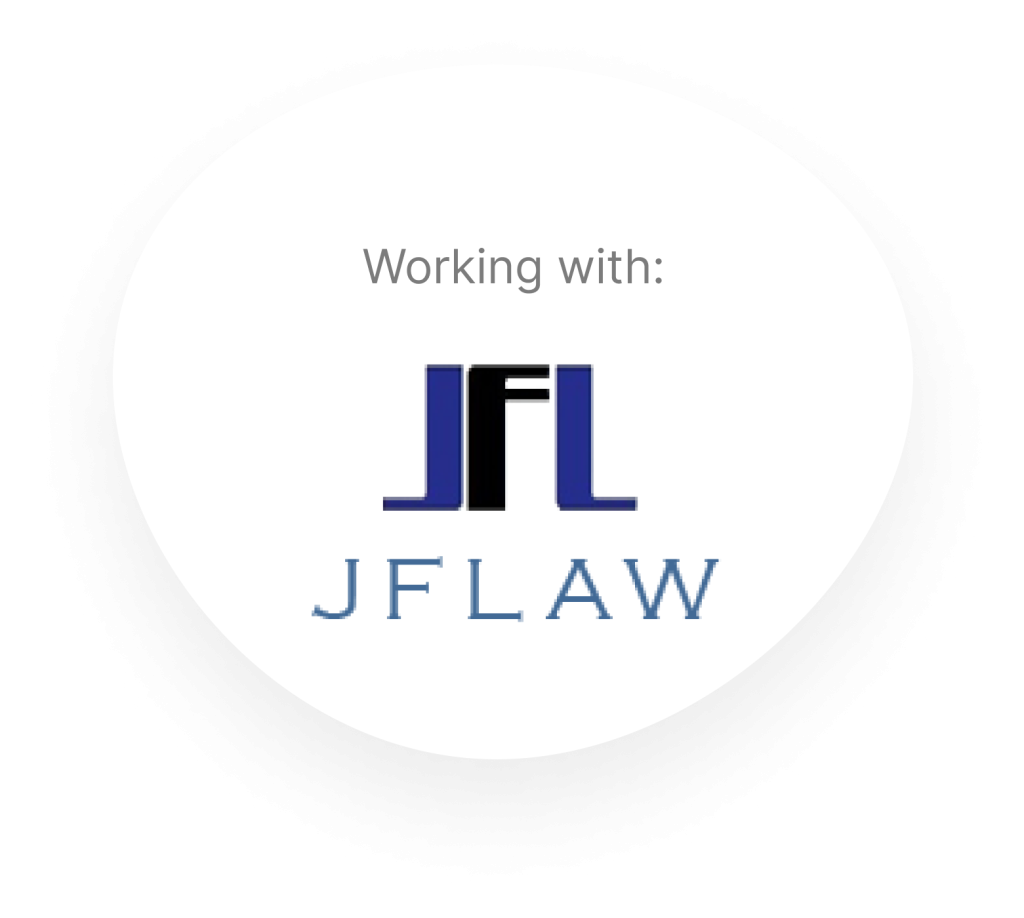Advice On Factory Accident Claims
No-win, No-fee claims
Learn how and when factory accident claims could be made.
Excellent Reviews On

Advice On Factory Accident Claims
100% No Win No Fee
Learn how and when factory accident claims could be made.
Excellent Reviews On
As featured in:




A Guide To Factory Accident Claims
Factories can be hazardous working environments, which is why it is essential that your employer implements health and safety measures to minimise the risk of injury. If your employer has failed to do this, and this has caused you to suffer a factory accident, you could be entitled to claim compensation.
We tell you everything you need to know about factory accident claims. From when you might be eligible to claim compensation to how to prove that your employer is liable for your accident and subsequent injuries, this guide covers all of the information you need.
Our No Win No Fee solicitors are experts in accident at work claims. If you are entitled to claim compensation, they will use their years of knowledge and work hard to ensure that you have the best chances of having a successful claim. To make an enquiry, please contact us today. Our contact services are free to use and live 24/7:
- Call 0333 091 8598.
- Fill out our contact us form.
- Send a message into our live on-screen chat box.

Who Can Make Factory Accident Claims?
Those who meet all of the following factory accident claims eligibility criteria could be entitled to compensation:
- You were owed a duty of care at work.
- Your employer breached this duty of care.
- You were injured as a result of this breached duty of care.
All employers owe their employees a duty of care, as per the Health and Safety at Work etc. Act 1974. To ensure they are complying with their duty of care, all employers must take reasonable steps that ensure workplace safety and minimise the risk of injury.
So, if you were injured in an accident at work and believe your employer failed to protect your workplace safety, please contact us today.
Can I Claim On Behalf Of A Loved One?
Yes, you can claim compensation on behalf of a loved one who’s been in a factory accident at work if they are unable to make their own claim. Claimants are unable to make their own claim if they are:
- Under the age of 18. Or,
- Mentally incapacitated.
In these cases, you can step in as a litigation friend and act in their best interests.
However, as a litigation friend, you only have until these points to step in:
- The date of their 18th birthday.
- The date they recover their full mental capacity.
After that, claimants must claim factory accident compensation by themselves.
To become a litigation friend, please talk to us today.
Why use us?
Free Consultation
We offer a free consultation to anyone looking to make a claim
No win, no fee
Claim experts
We use solicitors who have handled thousands of claims

The Most Common Factory Or Warehouse Accidents
Below are some examples of how a factory accident could occur. These examples show how an employer could breach their duty of care and cause a factory accident:
Slips, Trips And Falls
- There is a spillage in the factory, but your employer doesn’t display any wet floor signs to warn employees. Due to the lack of signage, you slip and fall on the spillage, leading to you fracturing your arm.
- Your employer carelessly left a toolbox in the middle of a walkway in the factory. You tripped and fell over this trip hazard, leading to you fracturing your ankle and knee.
Manual Handling Injuries
- Your employer had not given you any manual handling training before asking you to move a heavy box across the factory. You therefore used the incorrect lifting technique and slipped a disc in your lower back.
- Your employer had asked you to move a heavy box across the factory, but didn’t assess the weight of the load. The heavy box exceeded the weight limit for 1 person and should’ve been carried by 2 people. Due to the weight of the box, you drop the load on your foot, leading to soft-tissue injuries.
Hit Or Struck By Moving Objects
- Your employer did not provide you with a hard hat in the warehouse where there are overhead hazards. Due to this lack of Personal Protective Equipment (PPE), you were struck in the head by a falling object from one of the shelves in the warehouse, leading to you suffering brain damage.
- Your employer did not train your colleague on how to operate a forklift truck before asking them to use one. This led to you being run over by the forklift truck, and you suffered severe crush injuries because your colleague didn’t know how to use the brakes.
Machinery Accidents
- The safety guard on a cutting machine in the factory had been missing for some time, and your employer has made no effort to replace it, but still made you use the machine. While using the machine, you lose the tip of your fingers on your right hand.
- You suffered skin burns from being splashed by hot oil from a machine in the factory. The leak hadn’t been spotted because your employer had not maintained the machine in accordance with the manufacturer’s guidelines.
Fatal Factory Or Warehouse Accidents
- In a chemical plant, an employer failed to store flammable chemicals properly or safely. This improper storage led to an explosion, where an employee suffered fatal burn injuries.
- An employee was severely electrocuted while attempting to repair a machine that unexpectedly powered on, because the employer failed to implement any lockout procedures, leading to their fatal injuries.
These are just some selected examples, and do not cover all of the ways an employer of a factory could breach their duty of care. So, if you have been in a factory accident, please have a chat with us today about your circumstances and find out whether you can begin the factory accident claims process.
The Six Pack Regulations
The “Six Pack’ regulations in UK health and safety law refer to 6 pieces of legislation that were introduced by EU directives in the 1990s. They place specific duties on employers to ensure that employees are protected and safe at work. The Six Pack regulations include:
- The Management of Health and Safety at Work Regulations 1999 – This foundational legislation clarifies an employer’s responsibilities overall under the Health and Safety at Work etc. Act 1974, outlining how employers should manage workplace risks by conducting risk assessments, and providing adequate training.
- Workplace (Health, Safety, and Welfare) Regulations 1992 – This focuses on an employer’s responsibilities regarding the maintenance and upkeep of a workplace’s environment, outlining how ventilation, heating, and cleanliness should be controlled.
- The Health and Safety (Display Screen Equipment) Regulations 1992 – This outlines how employers must offer appropriate training and eye tests, and assess the risks associated with display screen equipment use, such as computers and smartphones.
- The Manual Handling Operations Regulations 1992 – This covers how hazardous manual handling should be avoided if possible, and when necessary, the appropriate manual handling training should be provided by employers.
- The Provision and Use of Work Equipment Regulations 1998 – This outlines how employers should ensure that all workplace equipment is suitable and well-maintained, and that employees are trained on how to use the equipment safely.
- Personal Protective Equipment (PPE) Regulations 1992 – This outlines how employers should appropriately provide, choose, store, and maintain PPE, replacing them when necessary.
These Six Pack regulations apply to any workplace, including factories. Employers have plenty of access to information in order for them to comply with these regulations. So, if you believe your employer was negligent and this caused you to suffer an injury, please contact us today.
What Is RIDDOR?
RIDDOR stands for the Reporting of Injuries, Diseases, and Dangerous Occurrences Regulations 2013. This law requires employers to report and keep records of specific workplace incidents, dangerous occurrences, and occupational illnesses. Some specific reportable incidents, occurrences, and illnesses include:
- Amputations of limbs.
- Serious burns that cover more than 10% of the body.
- Head injuries that cause loss of consciousness.
- Incidents involving cranes.
- Fractures (other than to toes or fingers).
- Any type of accident at work where the employee’s injury keeps them off work for 7 or more consecutive days.
After a factory accident, employers should determine whether the incident is reportable. If so, they then must notify the Health and Safety Executive (HSE) promptly (ideally within 10 days, or 15 days for cases of 7+days of incapacitation). Employers should notify the HSE either through their website or landline. The HSE is Britain’s regulatory body for workplace health and safety.
Within the employer’s report, there should be details on the date and time of the incident, what incident took place and what injuries were suffered, where it happened, and the injured employee’s contact details.
After the report is made, the incident will most likely be investigated to prevent a similar type of incident from happening again.
Contact our advisors today for more information on reportable accidents and injuries.
Can I Lose My Job If I Make A Claim?
No, you should not lose your job if you begin making a factory accident claim. This is because it is illegal for your employer to dismiss you or treat you any differently just because you’re making a valid compensation claim against them.
We can also reassure you that if you are connected with one of our specialist solicitors, it is unlikely that you will need to contact your employer directly about your factory accident compensation claim, as your solicitor can sort out all correspondence on your behalf.
To give you more comfort, if your factory accident claim is successful, the compensation will most likely be awarded out of your employers’ liability insurance, and not directly out of the company’s funds.
So, please don’t worry about suing your employer for negligence. Contact us today for free about your circumstances.
How Long Will I Have To Claim?
The Limitation Act 1980 states that the factory accident claims time limit is typically 3 years. This time limit commences from the date your factory accident happened.
However, as previously mentioned, those under the age of 18 or mentally incapacitated are unable to make their own claim until either:
- The date of their 18th birthday.
- The date they recover their full mental capacity.
As such, the 3-year time limit will instead commence from these dates if a litigation friend has not already stepped in.
Please contact us today to ensure that you begin your claim within the factory accident claims time limit.
Factory Accidents Compensation Calculator
Please feel free to use our factory accident claims compensation calculator below. Our calculator uses figures found within the Judicial College Guidelines (JCG).
The JCG is a publication that contains guideline compensation brackets for different types of injuries at various severities. Legal professionals will often use the JCG to help them calculate the value of your physical and mental suffering following a factory accident.
But, our compensation calculator doesn’t include every single injury type that is in the JCG. So, please only use it as a guide. For a more tailored and accurate free estimate of how much compensation your specific factory accident claim could be worth, please get in touch with us.
Compensation Bracket: 0.00
How Is Compensation Determined?
Accident at work compensation is determined by two heads of claim:
- General damages – which covers the way you’ve physically and mentally suffered as a result of your workplace injury.
- Special damages – which covers the way you’ve financially suffered as a result of your workplace injury.
Here are some factors that can determine the value of your general damages:
- Loss of amenity e.g. not being able to participate in hobbies.
- The severity of your injury.
- How long the recovery process is expected to take.
- The extent of the treatment that is needed.
And here are some types of financial losses that you can be reimbursed for under special damages:
- Loss of earnings – where you’ve taken time off work to recover from your workplace injury.
- Medical expenses – such as prescription costs.
- Home adaptations – adapting your home with specialist modifications or equipment so that it accommodates your injury.
- Childcare costs – if your injury means you are unable to care for your child.
- Care costs – if you need professional care or care from a friend or family member.
However, to ensure that you are reimbursed for all of the financial losses you’ve incurred relating to your workplace injury, you must provide evidence, such as:
- Bank statements.
- Payslips.
- Invoices.
- Receipts.
To learn more about how factory accident claims are calculated, please contact us today. We can give you a more personalised evaluation of how much compensation you could potentially be entitled to once you’ve discussed your circumstances with us and connected with one of our specialist solicitors.
What Evidence Will I Need To Prove My Factory Accident?
To prove your factory injury compensation claim, you should gather as much of the following as possible:
- CCTV footage of the factory accident happening.
- Photographs of the causation of the accident (such as a faulty piece of machinery).
- Photographs of your injuries.
- Copies of your medical records detailing your injuries.
- Personal diary entries of your symptoms and treatment.
- Contact details from anyone, such as other employees, who witnessed the accident.
- A copy of the incident report from your workplace’s accident logbook.
If you connect with one of our specialist solicitors, you don’t have to worry about gathering all of this evidence on your own. They will help you as part of their services. So, to see whether you can connect with a solicitor, please contact us today.
Can I Claim On A No Win No Fee Basis?
Yes, if you have an eligible factory accident injury claim, you can claim compensation on a No Win No Fee basis with one of our specialist solicitors.
All of our solicitors work under the terms of a Conditional Fee Agreement (CFA), which essentially means that:
- You pay nothing for your solicitor’s work before the claims process starts, or while the claims process is ongoing.
- You will pay nothing at all for your solicitor’s work if your factory accident claim is unsuccessful.
- If your claim is successful, only a small percentage of your compensation will be deducted by your solicitor. This small percentage is capped by the law, and is known as a ‘success fee’.
Additionally, our expert solicitors could help you with:
- Negotiating your compensation.
- Communicating with the defining party.
- Gathering evidence on your behalf.
- Organising an independent medical assessment and any rehabilitation you may need.
Contact Us To Start Your Claim
Contact us today to potentially start the factory accident compensation claims process and connect with one of our No Win No Fee solicitors. We are on hand to listen to your claim enquiry at any time:
- Call 0333 091 8598.
- Fill out our contact us form.
- Send a message into our live on-screen chat box.
More Information
For more information, please browse some of our other accident at work guides:
- How to make a head injury claim.
- Learn more about fatal accident claims.
- How to make a scaffolding accident claim.
Additionally, the information on these other pages might be useful for you:
- Gov.UK – advice on claiming Statutory Sick Pay (SSP) if you have needed time off work due to your factory injury.
- HSE – health and safety advice for warehouse and storage industries.
- NHS – when to perform first aid.
Thank you for reading our guide on factory accident claims.


